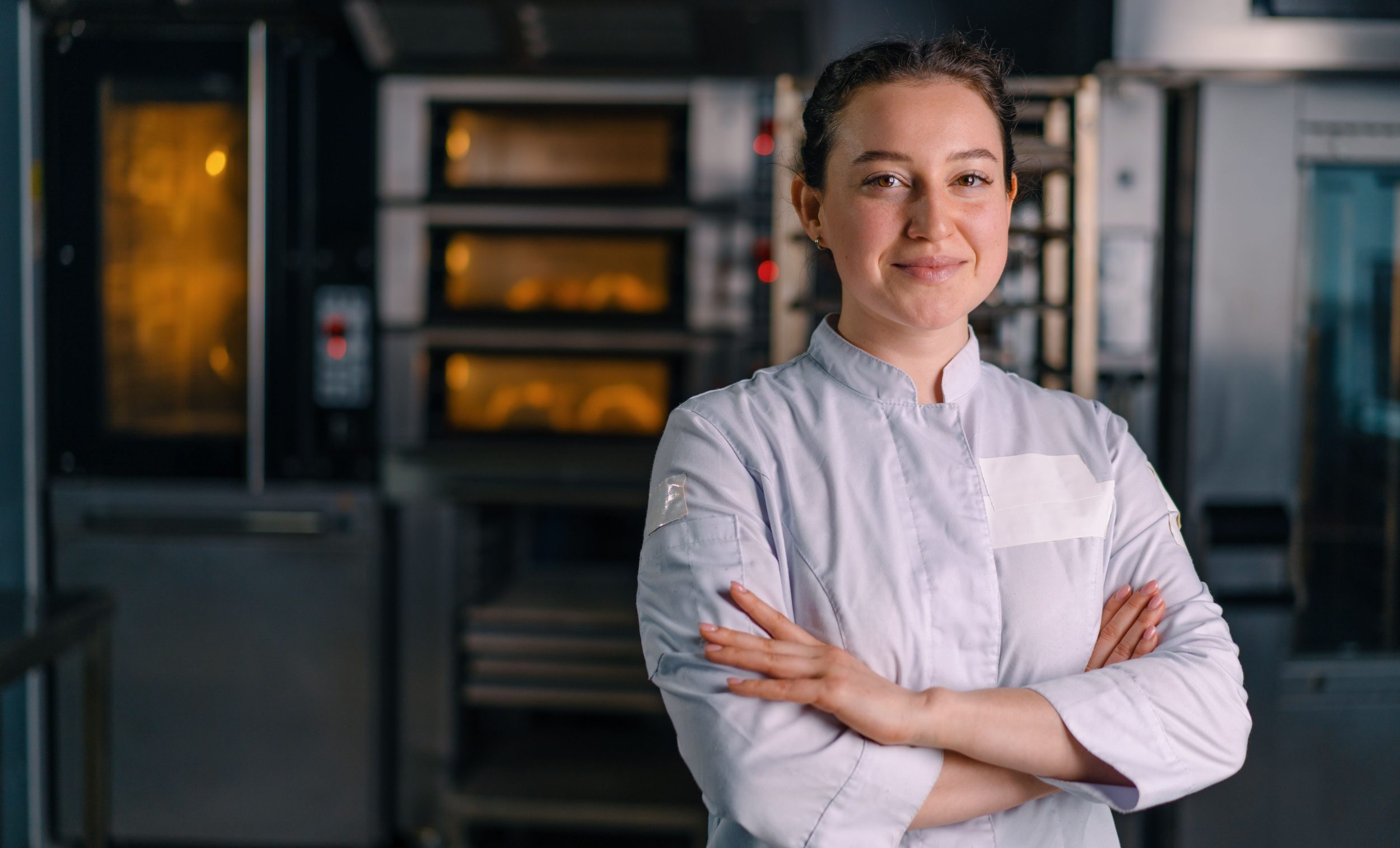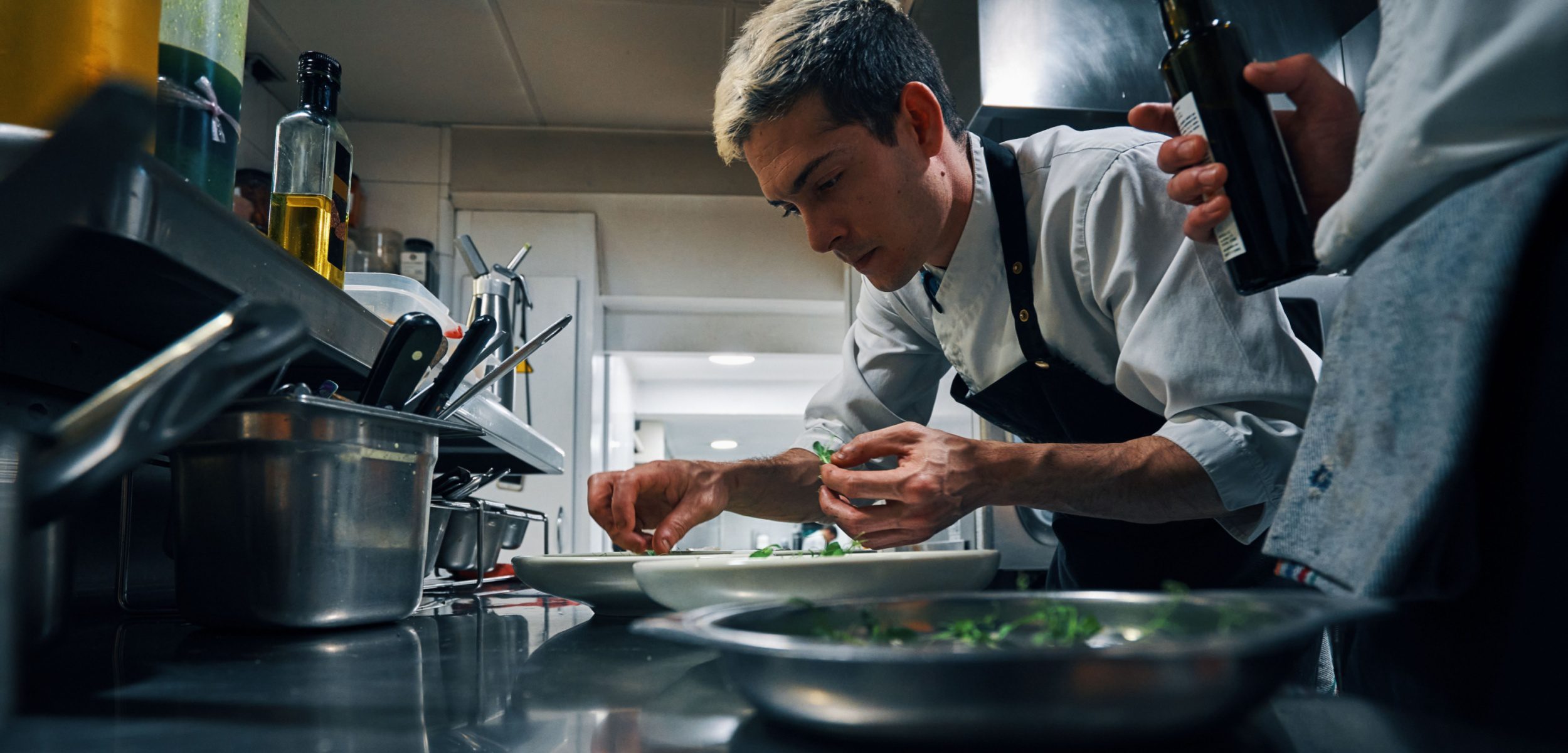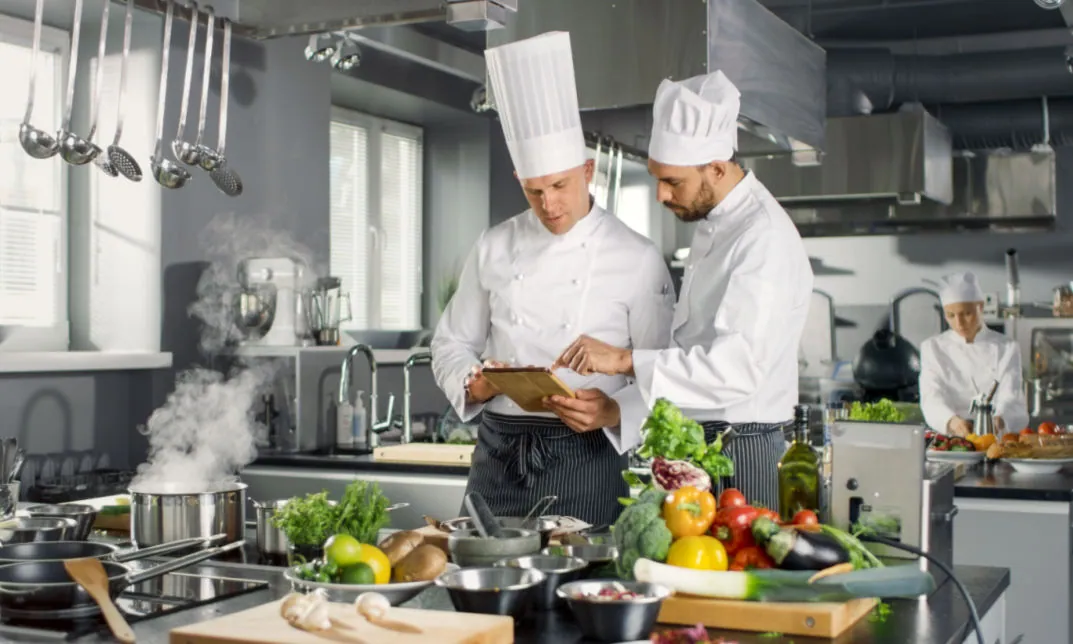No products in the basket.
Have you ever dreamed of turning your culinary passion into a career? The world of professional chefs is exciting, fast-paced, and incredibly rewarding. From plating beautiful dishes to leading a team in a bustling kitchen, there’s a reason why so many people aspire to wear the coveted chef’s hat.
But how exactly do you become a professional chef? This blog will be your guide, taking you through every step of the journey, from honing your skills to landing your dream job in a restaurant kitchen. This roadmap will provide you with the knowledge and resources you need to succeed.

What does a chef do?
A chef wears many hats, but at the heart of it all, they are culinary leaders. Here’s a glimpse into the exciting world of chefs:
- They oversee all aspects of food preparation, ensuring the highest quality and taste. They create menus, source ingredients, and skillfully execute dishes that tantalise the taste buds.
- Chefs manage a kitchen team, delegate tasks, ensure food safety, and maintain a smooth workflow. They also play a role in training and mentoring junior chefs.
- They require good planning and cost-control skills. They also need to understand the business side of food. They might be involved in ordering supplies, managing inventory, and keeping an eye on food budgets.
- Chefs are passionate about food! They experiment with flavours, develop new dishes, and beautifully plate their creations, transforming everyday ingredients into edible art.
- Chefs collaborate with kitchen staff, servers, and other departments to ensure a seamless dining experience. They also communicate effectively with vendors and suppliers to get the freshest ingredients.
What Are the Different Types of Chefs?
There are various chef roles in modern kitchens, so it’s important to consider which one you aspire to fulfil.
- Executive Chef (Chef de Cuisine): The Executive Chef is the boss of the kitchen. They create menus, manage the kitchen staff, and make sure everything runs smoothly. They also handle things like budgeting and ordering supplies. Their job is to keep the kitchen innovative and maintain high standards.
- Sous Chef (Second in Command): The Sous Chef is the Executive Chef’s main assistant. They help plan menus, supervise the kitchen staff, and ensure food quality. When the Executive Chef is away, the Sous Chef takes charge. They also train and mentor junior chefs.
- Station Chef (Chef de Partie): Station Chefs are in charge of specific areas of the kitchen, like the grill, sauté, or pastry station. Each Station Chef specializes in a certain type of cooking. They prepare ingredients, cook dishes, and keep their area clean. In larger kitchens, there can be multiple Station Chefs.
- Commis Chef (Junior Chef): The Commis Chef is an entry-level position, often for recent culinary school graduates. They do basic tasks like food prep, chopping vegetables, and helping with cooking. This role is important for gaining experience and developing cooking skills.

How to become a professional chef?
The world of professional chefs is exciting, challenging, and incredibly rewarding. If you’re passionate about food and driven to turn culinary dreams into reality, here’s a roadmap to guide you on your journey to becoming a professional chef:
- Follow Your Passion for Cooking: This field required having a passion for cooking and exploring different recipes and cuisines. Your passion will be your motivation throughout your career.
- Get Formal Education: You should consider a culinary school for essential skills in cooking techniques, kitchen management, and food safety. These programmes offer courses in areas like pastry or international cuisine.
- Participate in online courses: If you are really concerned about eyelashes, then you can join our Professional Chef Course at Training Tale. All of our courses are recognised by CPD. Furthermore, we provide 24/7 support to our students and certificates after completing this course.
- Gain Hands-On Experience: It will boost your efficiency, if you work in various kitchens, starting from entry-level positions like prep cook or line cook. Plus, you need to learn different cooking styles and techniques to build your skills.
- Learn from Experienced Chefs: You should find a mentor who can teach you and provide guidance. Working under skilled chefs will help you learn industry secrets and improve your skills.
- Develop Strong Work Ethics: Prepare for long hours and hard work. Be reliable, punctual, and willing to work weekends and holidays. Your commitment will set you apart.
- Stay Updated with Culinary Trends: we You need to follow food trends by reading culinary magazines, attending festivals, and following chefs on social media. Experiment with new ingredients and techniques.


